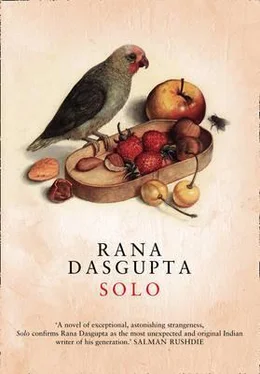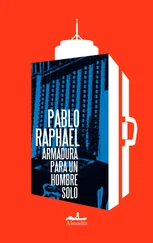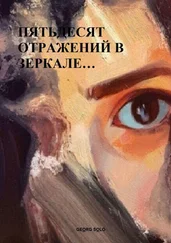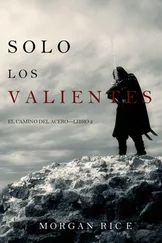Irakli put his head close to hers. He was still thinking about the woman in the lobby.
‘She added the total on a calculator. Then she wrote out the tickets by hand.’
The singer hit a high note and lifted her bare leg on to the piano, and both performers dissolved into laughter. People clapped, and another act came on to the stage.
‘So what’s her computer for?’ said Irakli. He was full of glee. ‘It’s just for her to play solitaire. It’s just a two-thousand-dollar pack of cards.’
Plastic was backstage with his entourage. The editor of a big magazine was there, and some movie people, and a princess from the deposed Bulgarian royal family.
‘It’s absolutely true,’ he said sotto voce. ‘He grew up in a totally empty town. There was no one else except his grandmother. He grew crops and raised pigs — he made candles from pig lard to light his house, for God’s sake. When he came here he didn’t know — you know — anything . But he’s a genius. He’s just a pure natural fucking genius. When you hear him you’ll understand. I haven’t been this excited about an artist in years.’
The room was small, and the photographer kept flashing. Boris had turned his back and was warming up in the corner. He had on a green military uniform. Plastic introduced his guests to the owner of the club.
‘Isn’t this place great, though?’
They gushed compliments. Someone mentioned the antique chemical bottles so artfully laid out in the men’s bathroom. A conversation began about a fabulous little store in the Village where you could pick up the most eccentric things. They drank champagne and chatted happily.
‘I’m allergic to sulphites, you see.’
‘Once in his life, a man should buy a pair of leather pants.’
‘I saw him play in Carnegie Hall, just two months before he died.’
‘ Africa? I said. There’s nothing to do in Africa!’
Noise was building in the club. The owner said it was getting full out there. The bandoneon player took off his jacket and warmed up with some tango. The magazine editor said,
‘Plastic has probably done more than anyone else.’
A mobile phone rang. The movie director took the call and got into an argument with someone on the other end.
‘He didn’t mean it in a negative way? Can someone please explain to me?’
‘Boris needs some water. Get some water over here. And keep the volume down!’
‘More than anyone else I can think of to dictate cultural taste in the world today. Can anyone think of anyone else who comes close?’
The Bulgarian princess lit a cigar. Her hair was shorn. Boris had a melody he was trying out, again and again. The movie director was indignant on the phone:
‘I’d like to know how someone can say genocide in a positive way.’
‘His influence goes beyond music, because it’s not just about music. It’s an aesthetic attitude to globalisation.’
The CEO of Universal stopped by with another bottle of champagne and they drank a toast. Boris signed a couple of invitations, and the CEO did a mock benediction. OK , said Plastic, OK, everybody out!
‘If he’d stayed in America he would have been as big as Duke Ellington,’ said the movie director to the princess. ‘But no one’s heard of him because he spent the whole of the thirties in Europe. I went to see him play in Carnegie Hall before he died: there were maybe forty people in the audience.’
‘Let’s have some quiet back here!’
‘He was playing in Berlin and Paris. He was playing in Latin America.’
Everyone filed out, still talking, and Plastic was left alone with the band. He shook hands with each of them.
‘You don’t need any advice from me,’ he said. ‘Go make some music.’
From the moment Boris came on the stage, Irakli was transfixed: he had never heard anything as magnificent as this. The DJ’s samples were sharp, like the brilliant ripples in a murky well. The bandoneon was like leather carving on the tune. Boris played four pieces, back to back, and the music came to Irakli like poetry.
She plane? She solstice?
She sixty forecast of seven breezes, the anticyclone miniature,
a mossy-flooring wading girl!
Was cirrus not she, nor tremor nor breakfast? She fair was timely –
but storm wind loafs impatient.
The whale is averse on a New England beach .
She bitter squints the squat-eye fool
and mirthly mock entire the mull:
My dearly friend, so faithful-word ,
does your deliquesce recur?
Is your senescence waking up?
He not fuss the morphosis, his lugubrious style:
This is radium love, do not litter the arm.
They don’t count the corpses that sink to the deep .
Boris shone as he played, and all the people in that room were filled with new kinds of desire. They wanted to follow him through his hole in the sky. They tugged at him with infantile dependence. They coveted the perfection of his body’s sway. They applauded him, reached out their hands, and sucked at him with clammy eyes. They became wet with their own saliva: for he was unattainable, and his absence crept into their mouths. They understood the cannibal’s dream.
The music ended, the lights went up, and the crowd screamed and clapped. They were sitting under Boris’s feet, for the stage was small, and everywhere was free champagne.
Irakli said to Khatuna, raising his voice over the outcry,
‘He is amazing! Amazing!’
His face was glowing with excitement.
Khatuna raised her eyebrow. She said,
‘I’d like him to rebuke me.’
The DJ and the bandoneon player filed offstage, leaving Boris alone with the pianist. Boris said,
‘I will play the second violin sonata by Alfred Schnittke, written in 1968.’
It was a piece he had learned from Plastic’s CD collection, but Plastic was aghast.
‘What the hell is he doing?’ he whispered. ‘He’s supposed to play his own music!’
The sonata was dissonant and excruciating, and the faces in the audience went blank. Irakli heard it like an endless struggle –
radium cholera bitumen patriot
albatross desiccate fungicide pyramid
chemical Africa national accident
multiply hurricane industry motivate
— the violin not played but wrestled, the piano pummelled, like the repetition of a gun that has ceased to work.
terminal citizen management piracy
digital contribute parasite northerly
democrat corporate marketing ministry
generate synchronise quality property
Pakistan automate cellular weaponry
bullet hole Heisenberg certify history
Plastic wanted to stop it. He said,
‘This is suicide.’
alcohol medicine embassy recognise
dentistry personal hospital circumcise
It was interminable, and there was no refusal. The piano crashed the same chord a hundred senseless times, a psychopath’s barrage.
document educate financing bellicose
structural legalise radical standardise
borderline distribute rational wintertime
The audience was racked across silence. The music ended, and there was no relief.
Boris bowed, and people clapped with dull recognition. The hall was wrung out: they wondered why they had deserved it.
He said,
‘Now I will play music of my own.’
The violin began alone, the stirring of future love. The other musicians came quietly onstage. Plastic’s heart was grinding. The bandoneon trembled, the chords were poised.
The ptarmigan ruff, the mastodon mouth, an emerald cotyledon …
Читать дальше
Конец ознакомительного отрывка
Купить книгу












